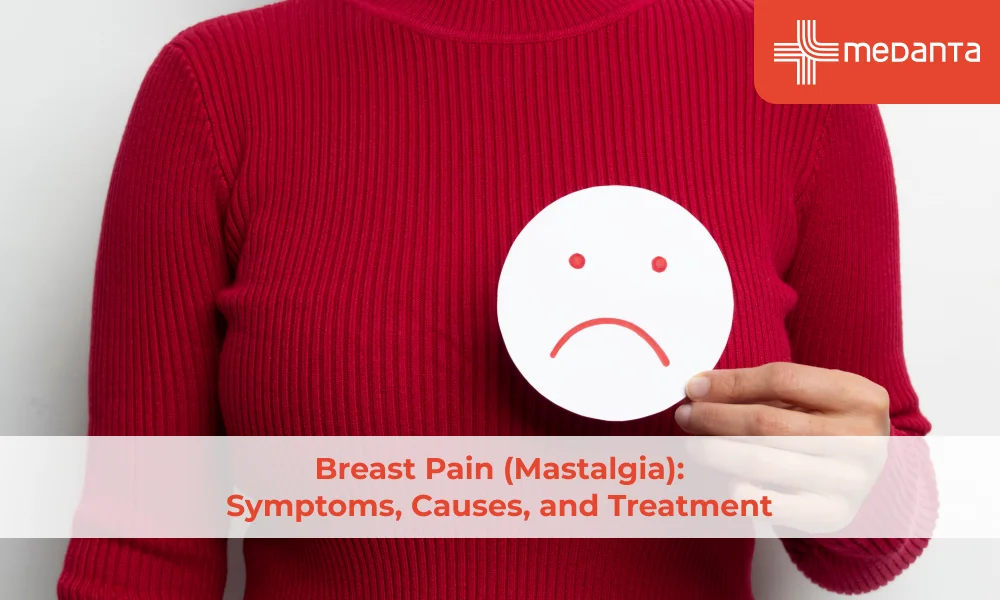The Importance of Pediatric Ventilation in the Neonatal Intensive Care Unit (NICU)

Specialized treatment is provided by the Neonatal Intensive Treatment Unit (NICU) for newborns who are prematurely delivered or have complicated medical conditions. Pediatric ventilation becomes a critical intervention in this specialized setting, giving weak babies vital oxygen support. This machine plays a crucial role in maintaining health and promoting the development of newborns in the NICU.
In 2020, India witnessed a significant number of preterm births, reaching 30,16,700, which accounted for more than 1 in 10 babies born. Medical professionals have expressed concerns that the preterm birth rate may have continued to rise in 2023.
In this blog, we will learn more about the substantial importance of pediatric ventilation in the NICU.
Understanding Neonatal Respiratory Challenges
Significant risks are posed by neonatal respiratory disorders, especially prematurely born babies whose underdeveloped lungs make it difficult for them to breathe. These challenges are sometimes exacerbated by illnesses such as congenital abnormalities and respiratory distress syndrome (RDS). Premature deliveries increase susceptibility; thus, specialist care and a Neonatal Intensive Treatment Unit are essential. Insufficient surfactant prevents adequate lung expansion, which leads to respiratory distress syndrome, a frequent problem in preterm newborns.
Prolonged ventilator support is commonly associated with bronchopulmonary dysplasia, a chronic lung illness. Congenital abnormalities further complicate respiratory function. These babies struggle to get the vital oxygen they need for healthy growth and development if they don't receive timely and sufficient respiratory assistance.
Importance of Pediatric Ventilation
Babies who are not able to breathe on their own require mechanical Ventilation. This method supplies enough oxygen to the baby's lungs.
- Non-Invasive Ventilation:
- (CPAP) Nasal Continuous Positive Airway Pressure and Nasal Intermittent Positive Pressure Ventilation (NIPPV) in Neonatal Intensive Unit:
- Utilized in less severe cases.
- Offers respiratory support without invasive procedures.
- Promotes a gentler approach to assist newborns in breathing more comfortably.
- Invasive Ventilation:
- Endotracheal Intubation in NICU:
- Employed in more critical situations.
- It involves placing a small tube into the infant's trachea.
- Facilitates direct delivery of oxygen into the lungs.
- It is crucial for infants facing severe respiratory challenges when non-invasive methods are insufficient.
Benefits of Pediatric Ventilation in the NICU
- Ensuring Enough Oxygen
- Reducing Respiratory Distress:
- A pediatric ventilator in the NICU eases the respiratory discomfort experienced by preterm infants.
- Its regulated breathing assistance lessens the respiratory discomfort that preterm newborns experience.
- These machines in the NICU reduce the strain on tiny lungs by providing controlled breathing support, preventing exhaustion and potential complications.
- Making Babies Stronger:
- Using pediatric ventilation in the NICU has made more babies survive in special care units.
- It gives a chance to babies who might not have made it years ago.
- Supporting Lung Development:
- Pediatric ventilation in the NICU supports the growth of tiny lungs in premature babies.
- Pediatric ventilation in the NICU keeps away problems like bronchopulmonary dysplasia (BPD) that can affect the lungs as babies grow up.
Challenges and Considerations:
While pediatric ventilation is a remarkable advancement in neonatal care, it is not without challenges. Careful monitoring, infection prevention, and consideration of potential complications, such as lung injury or air leakage, are essential for managing ventilated infants in the NICU.
- Careful Monitoring:
Constantly monitoring the vital signs and the responses of the babies to the ventilation in NICU is important. Due to these close observations, specialists ensure that specific adjustments can be made promptly.
- Infection Prevention:
Intubation and other invasive breathing techniques in the NICU raise the risk of infection. Thus, it is essential to protect these newborns' health with strict infection prevention methods, such as hand cleanliness and a sterile atmosphere in the NICU.
- Long-Term Effects:
Pediatric ventilation machines in the NICU can save lives, but it can have a long-term impact on babies' respiratory systems, and it should be examined carefully.
- Prevention of Lung Injury:
Lung damage is one of the dangers that a baby may suffer from when on a ventilation machine in the NICU. To avoid that condition, it's important to take proactive measures to decrease the chances of lung damage. Also, healthcare providers must exercise caution while changing ventilation parameters to safeguard babies' delicate respiratory systems.
- Air Leakage Management:
It's important to check the ventilation machine in the Neonatal Intensive Care Unit often for the possibility of air leakage when it comes to pediatric ventilation. Specialists should make sure that the intervention is successful and prevent problems that might arise from inadequate ventilation, and it is crucial to detect and fix any leaks in the ventilation system in the NICU.
- Nutritional assistance:
Infants on prolonged ventilation in the Neonatal Intensive Care Unit need the right kind of diet. Since appropriate nutrition is vital for maintaining overall health and recovery, healthcare staff must regularly monitor and adjust the dietary requirements of ventilated babies to preserve optimum growth and development.
- Family Engagement and Support:
During this process, it is important to have family support, especially from parents. Engagement with clear communication, and instructional and emotional support for parents and other caregivers provide a cooperative atmosphere for ventilated newborn care. This enhances the baby's general health while they are in the Neonatal Intensive Care Unit (NICU).
Conclusion:
Pediatric ventilation is no doubt a lifesaving technology that supports premature babies with breathing problems. This method, which is applied in Neonatal Intensive Care Units (NICUs), is used to give controlled oxygen according to the needs of the babies who may have respiratory distress.






